|
The Grandfather Clock
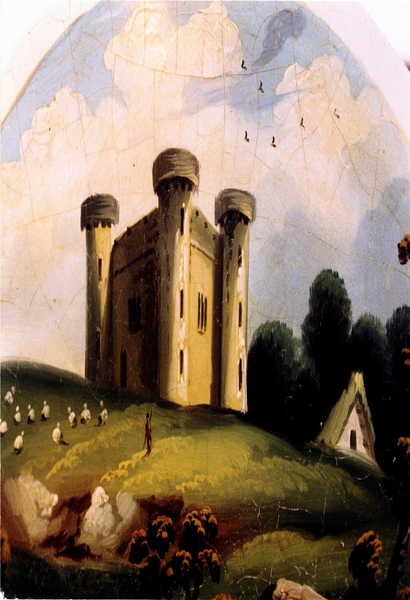
The Grandfather Clock by Anthony Hill, illustrated by Mark Wilson, cover by Peter Gouldthorpe. Lothian Books, Melbourne, 1996, 240 pages, paperback. Out of Print
A story that will linger long in the memory of the reader, one of the all-too-few books that offer a gifted child genuine nourishment for the mind and heart (Margaret Dunkle, Children's Literature Consultant).
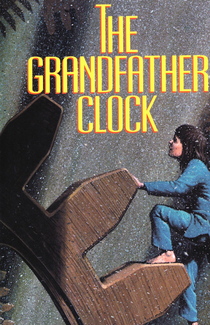 Anthony Hill's novel The Grandfather Clock, is very different both in theme and treatment to his other books. A challenging fantasy journey through time, it is the story of Constance – Con – who finds herself trapped inside the family's grandfather clock. Anthony Hill's novel The Grandfather Clock, is very different both in theme and treatment to his other books. A challenging fantasy journey through time, it is the story of Constance – Con – who finds herself trapped inside the family's grandfather clock.
The only way she can get out is to climb the chain and through the clockwork, until she falls into the picture on the painted face. And the only door in the picture is the one that goes into the mysterious painted castle...
Charon by Mark Wilson
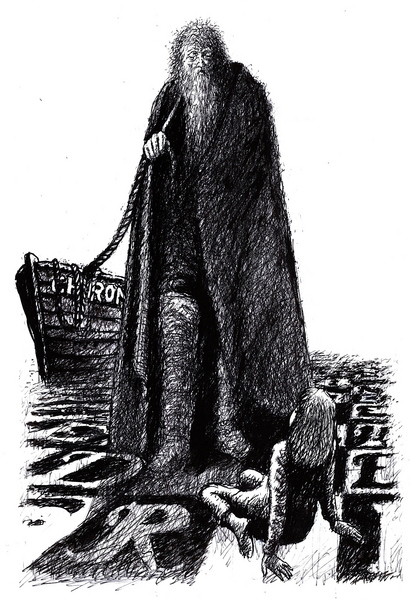 Illustrated with wonderful ink line drawings by Mark Wilson, The Grandfather Clock is full of word games and number games and sometimes both games together, all of which Con and the reader have to solve to find the way out. Illustrated with wonderful ink line drawings by Mark Wilson, The Grandfather Clock is full of word games and number games and sometimes both games together, all of which Con and the reader have to solve to find the way out.
And the clock is inhabited by many mythical, sinister or comic creatures who offer Con more clues ... Queen Victoria's head, Hades, Charon the Ferryman, the time child Ten O'Clock, Cloud Cuckoo, the goddess Aphrodite, and the unknown lord who dwells in the heart of the castle.
Reading this book was a fascinating experience. It was rather like travelling for the first time down Alice's rabbit hole, into a strange new world where everything works according to its own mad logic, and the characters speak in conundrums whose meaning is only gradually made clear. (Margaret Dunkle)
Puzzle: At the entrance to the underworld kingdom of Hades is a verse written on a chessboard. It's the key that unlocks the whole mystery. But what does it mean?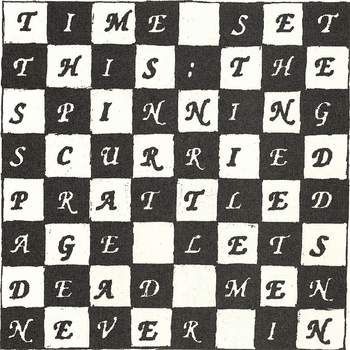
And here's a clue: What do the numbers on a clock face add up to? And why is that important to solving the mystery of The Grandfather Clock?
What the critics said about The Grandfather Clock.
It is a long and complex story demanding total involvement from the reader. In return it offers a rich imaginative experience, one that may lead to further reading in classical literature, Greek myths in particular, or to independent speculation on the meaning of time (Margaret Dunkle).
There is much to reflect on in this compelling fantasy, which will challenge experienced readers (SCAN reviews, NSW Dept. of Education)
Cronus by Mark Wilson
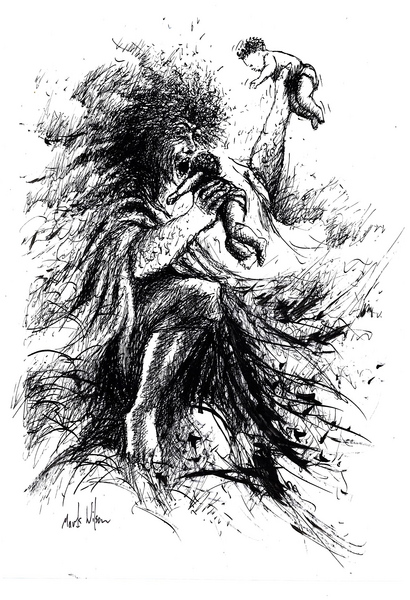 A dedicated reader fascinated by number or the intracicies of myth will find The Grandfather Clock a rewarding exercise. For others, Con's experiences, like Alice's, may leave the reader bewildered (Reading Time). A dedicated reader fascinated by number or the intracicies of myth will find The Grandfather Clock a rewarding exercise. For others, Con's experiences, like Alice's, may leave the reader bewildered (Reading Time).
If you're longing for adventure, mystery and a test of brain power, then join Constance in her journey to get past the cogs, wheels and chains to finally get out to the real world where everyone talks sense - or do they? (Carissa Bourke, Ingham High School).
Why did you write The Grandfather Clock?
The idea suddenly came to me one day in the bathroom - what about the story of a girl caught in a grandfather clock and the only way she can get out... I resisted the idea for a week, but it was so strong I had to sit at my desk and start writing it down to find out for myself what happened.
Did it take long to write?
About three months altogether - which is pretty quick for a book of 45,000 words. It was an extraordinary experience. It was as if the story already existed, and my job as the author was simply to take down the words dictated from somebody else inside my head. I wish all books were like that!
Where did the ideas come from?
 We have a grandfather clock in our hall at home with the same picture: a castle with three towers standing in a field, a shepherdess looking after her funny looking sheep, a cottage, a forest and a flock of blackbirds in the distance. Then again, I had been wanting for some time to write a book drawing on the ancient Greek myths. I suppose the story worked itself out in my unconscious mind. When it was ready it came to the surface and demanded to be written down on paper. We have a grandfather clock in our hall at home with the same picture: a castle with three towers standing in a field, a shepherdess looking after her funny looking sheep, a cottage, a forest and a flock of blackbirds in the distance. Then again, I had been wanting for some time to write a book drawing on the ancient Greek myths. I suppose the story worked itself out in my unconscious mind. When it was ready it came to the surface and demanded to be written down on paper.
Is it a book for everyone?
Most of the critics have noted that The Grandfather Clock is a challenging and complex book that will appeal mainly to experienced and gifted readers. Yet these readers, too, deserve to have books written for them - books that will stimulate their imaginations, and help them tap into the deeper well-springs of our literary and cultural traditions. Classical mythology is very much part of it. Every generation has to interpret the myths anew, of course – but that is the reason they have survived.
Awakening by Mark Wilson
When do you write?
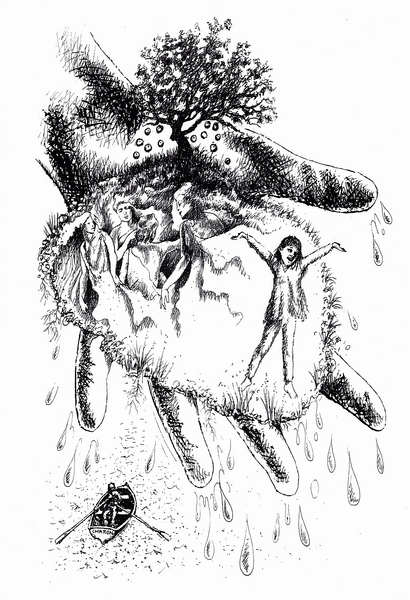 Some authors work best late at night, some in the afternoon. When I am writing a new book it comes to me in the very early morning from out of my dreams. Some authors work best late at night, some in the afternoon. When I am writing a new book it comes to me in the very early morning from out of my dreams.
I wake up about 5am with the next part of the story in my head. I get up, make some tea, and while the house is still and dark I sit at my desk for about two hours, writing down the words in my notebook. By 7 am the words have gone, and I start getting myself and the family ready for the day's work. I usually stop writing where I know how the story will go on. For the rest of the day I let the ideas roll around in my head, working themselves out in my sub-conscious.
I'll go to bed early, about 9 pm, and dream the next bit of the book - wake up at 5am, get up and write it down. So it goes on until one day, at last, I can write the words The End at the bottom of the manuscript.
Do you like working this way?
I hate it. I hate getting up early. I'd much rather sleep in and let the muse come to me at a decent hour - after breakfast, say. But it doesn't work that way for me. When a book is really coming, it can be exhilarating ... but it is also exhausting and demanding. Yet I have no choice. I write because I have to - because it is the only way to get rid of the urgent voices inside me - and not necessarily because I want to write.
|